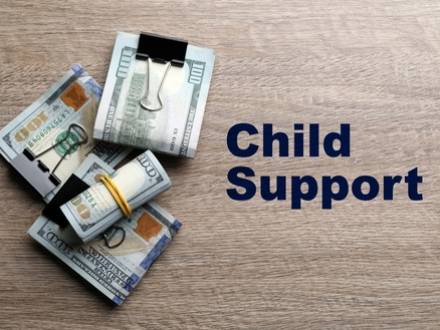Recent Blog Posts
Legal Separation vs. Divorce in Illinois
 When a couple starts to question the future of their relationship, taking action can be scary. Often, people jump straight to divorce without knowing that legal separation is an option. Others simply do not know the difference between the two. Understanding your options is vital to ensuring you make an informed decision, and an experienced Illinois divorce attorney can help.
When a couple starts to question the future of their relationship, taking action can be scary. Often, people jump straight to divorce without knowing that legal separation is an option. Others simply do not know the difference between the two. Understanding your options is vital to ensuring you make an informed decision, and an experienced Illinois divorce attorney can help.
Legal Differences Between Separation and Divorce
Under a legal separation, you and your spouse can separate your lives very similar to how you would in a divorce. This typically includes dividing assets from the marriage, such as real estate, bank, and retirement accounts; working out support payments just as you would during divorce proceedings; and setting up a child custody arrangement.
The key difference between legal separation and divorce is that there is no dissolution of the marriage. You are not technically divorced and marrying someone else would not be legally possible.
Can My Child Choose Which Parent to Live With in Illinois?
 When parents divorce or separate, determining child custody can be one of the most emotional and challenging aspects of the process. Many parents and children wonder whether the child gets a say and can influence the court's decision. Illinois law does allow a child's opinion to be considered, although there are important factors that parents should understand about how courts handle these situations. To learn more about these considerations, speak with a qualified Illinois family law attorney.
When parents divorce or separate, determining child custody can be one of the most emotional and challenging aspects of the process. Many parents and children wonder whether the child gets a say and can influence the court's decision. Illinois law does allow a child's opinion to be considered, although there are important factors that parents should understand about how courts handle these situations. To learn more about these considerations, speak with a qualified Illinois family law attorney.
Does Illinois Allow the Child to Choose Which Parent to Live With?
Illinois courts prioritize the best interests of the child when making custody decisions, which are legally referred to as the allocation of parental responsibilities and parenting time. The child's wishes can be taken into account, but they are not the only factor that is considered.
What Happens if My Ex Violates Our Custody Agreement in Illinois?
 When a custody agreement is reached and court-approved in Illinois, both parents are legally obligated to follow its terms. If your ex violates your custody order, it can create stress and confusion, and harm you as well as your child. Fortunately, Illinois law offers several options for enforcing custody agreements and protecting your parental rights. To find out more, speak with a qualified Illinois family lawyer who can explain the various strategies and offer valuable guidance.
When a custody agreement is reached and court-approved in Illinois, both parents are legally obligated to follow its terms. If your ex violates your custody order, it can create stress and confusion, and harm you as well as your child. Fortunately, Illinois law offers several options for enforcing custody agreements and protecting your parental rights. To find out more, speak with a qualified Illinois family lawyer who can explain the various strategies and offer valuable guidance.
How Can a Parent Violate a Custody Arrangement?
As we all know, life does not always go as planned, and unexpected things can happen that force us to adjust. Unmarried parents with shared parental responsibilities need to keep that in mind. For example, if one parent is stuck in traffic and running a few minutes late to drop the child off with the other parent, or one becomes sick with a fever and cannot manage to pick the child up according to the agreed schedule, it would not typically be considered a valid time to seek court intervention.
How Can a Court-Appointed Financial Expert Help Your Illinois Divorce?
 When you realize you are headed toward a divorce, you might feel overwhelmed before the process even begins. Hiring the right professional to advise you and be by your side throughout can make a big difference in your entire experience.
When you realize you are headed toward a divorce, you might feel overwhelmed before the process even begins. Hiring the right professional to advise you and be by your side throughout can make a big difference in your entire experience.
Going through a divorce can be overwhelming financially just as much as emotionally. In Illinois, issues like property division, spousal support, and child support often involve complex financial matters, and some people find that they would appreciate consulting with a Certified Public Accountant (CPA) or a court-appointed financial expert. At The Law Offices of Curtis Bennett Ross, L.L.C., our Illinois divorce lawyer is also a court-appointed financial expert and a CPA, and the legal guidance he can offer is invaluable.
What Does a Court-Appointed Financial Expert Do?
A court will typically appoint a financial expert to a divorce case when financial matters that can impact the proceedings need to be assessed and given an impartial analysis. Whether clarification is needed for the division of assets, spousal support, or other monetary disputes, their knowledge can significantly streamline decisions.
Do I Have Any Options if the Father Refuses to Acknowledge Our Baby?
 Sometimes, two people meet, fall in love, get married, and have a baby, and the path they take as a family is fairly straightforward. However, for many people, reality does not follow that pattern. Many children are raised only by their mother and her family. Some mothers do not know who the father is, some refuse to tell the child who it is, and in some cases, everyone involved knows who both parents are, but the father is uninterested in having any involvement. If your child’s father is unwilling to acknowledge the role he plays in your child’s life, speak with an experienced Chicago, IL family law attorney about your options regarding paternity.
Sometimes, two people meet, fall in love, get married, and have a baby, and the path they take as a family is fairly straightforward. However, for many people, reality does not follow that pattern. Many children are raised only by their mother and her family. Some mothers do not know who the father is, some refuse to tell the child who it is, and in some cases, everyone involved knows who both parents are, but the father is uninterested in having any involvement. If your child’s father is unwilling to acknowledge the role he plays in your child’s life, speak with an experienced Chicago, IL family law attorney about your options regarding paternity.
How is Paternity Established in Illinois?
Paternity, or the legal recognition of a father, can be established whether or not the father is willing to acknowledge his role in the child’s life.
The Income Shares Model for Child Support Calculations in Illinois
 Parents going through divorce tend to feel overwhelmed at the prospect of child support. Whether you will be paying it or receiving it, you need to understand how much it will be so you can plan around it. With clear state-mandated guidelines dictating how child support payments are calculated, an experienced Illinois family law attorney can review your situation and give you clarity and reasonable expectations.
Parents going through divorce tend to feel overwhelmed at the prospect of child support. Whether you will be paying it or receiving it, you need to understand how much it will be so you can plan around it. With clear state-mandated guidelines dictating how child support payments are calculated, an experienced Illinois family law attorney can review your situation and give you clarity and reasonable expectations.
What is the Income Shares Model?
Illinois uses an "income shares" model to determine child support amounts. This model calculates the parents’ income and the child’s needs. The goal is to ensure that the same proportion of parental income will be spent on the child by divorced parents as it would have been if they were still together, to maintain the child’s standard of living.
How Does Someone Become a Court-Appointed GAL in Illinois?
 A Guardian Ad Litem, or GAL is a person that the court can appoint in cases that involve children, typically when matters like custody are being decided. Their main job is to determine what the child’s best interests are and represent those interests in court on the child’s behalf.
A Guardian Ad Litem, or GAL is a person that the court can appoint in cases that involve children, typically when matters like custody are being decided. Their main job is to determine what the child’s best interests are and represent those interests in court on the child’s behalf.
While some parents might feel intimidated and threatened when a GAL is appointed to their case, the truth is that this person is not there to judge or accuse you but rather to make sure that the child’s well-being remains the top priority in any court proceedings that can impact his or her life. In addition to being an experienced Chicago, IL custody lawyer, Attorney Curtis Bennett Ross is also a court-approved GAL and can answer any questions you may have about the role and its implications in your case.
Do Co-parenting Apps Really Help Unmarried Parents?
 Technology has become a crucial part of everyday life, with new apps developing constantly to optimize so many aspects of our routine. One of the tools that has been gaining popularity among divorced or separated parents is co-parenting apps, which are designed to help parents manage shared responsibilities like custody schedules, school events, and parental communication.
Technology has become a crucial part of everyday life, with new apps developing constantly to optimize so many aspects of our routine. One of the tools that has been gaining popularity among divorced or separated parents is co-parenting apps, which are designed to help parents manage shared responsibilities like custody schedules, school events, and parental communication.
As more parents experience first-hand what these apps can do, some are wondering whether they truly help or simply create more problems than they solve. To learn more about navigating the challenges of co-parenting when you are not married, speak with an experienced Chicago, IL family law attorney.
What Do Co-Parenting Apps Do?
Co-parenting apps are digital tools that help parents manage their shared parenting duties and are aimed at reducing conflict. Some of the most popular apps offer features that include:
Modifying Spousal Support Payments in Illinois
 Alimony has various names depending on the state you are in, and in Illinois, it is officially known as "spousal support." These payments are made by one ex-spouse to the other after divorce. They are meant to ensure that the receiving spouse can maintain a lifestyle similar to what they had in married life or have financial support to help them get back on their feet.
Alimony has various names depending on the state you are in, and in Illinois, it is officially known as "spousal support." These payments are made by one ex-spouse to the other after divorce. They are meant to ensure that the receiving spouse can maintain a lifestyle similar to what they had in married life or have financial support to help them get back on their feet.
However, the amount to be paid is calculated based on information that was true during the time the divorce was settled. As with anything else in life, circumstances can change, leaving some spouses wondering whether it is possible to modify their spousal support arrangement. If this is a question you find yourself asking, speak with a knowledgeable Chicago, IL family law attorney to learn more.
Am I a Victim of Parental Alienation?
 Parental alienation is when one parent deliberately tries to undermine the other parent’s relationship with their child. This can be devastating for both the child and the alienated parent. While Illinois courts recognize this, it can be hard to determine what constitutes parental alienation. If you think you are the victim of parental alienation, speak with a knowledgeable Skokie, IL family law attorney to understand your options.
Parental alienation is when one parent deliberately tries to undermine the other parent’s relationship with their child. This can be devastating for both the child and the alienated parent. While Illinois courts recognize this, it can be hard to determine what constitutes parental alienation. If you think you are the victim of parental alienation, speak with a knowledgeable Skokie, IL family law attorney to understand your options.
What is Parental Alienation?
Parental alienation is when a parent manipulates a child’s feelings toward the other parent, hoping to damage or even eliminate the child’s relationship with that parent. This can happen in different ways, for example:

 312-984-1514
312-984-1514

